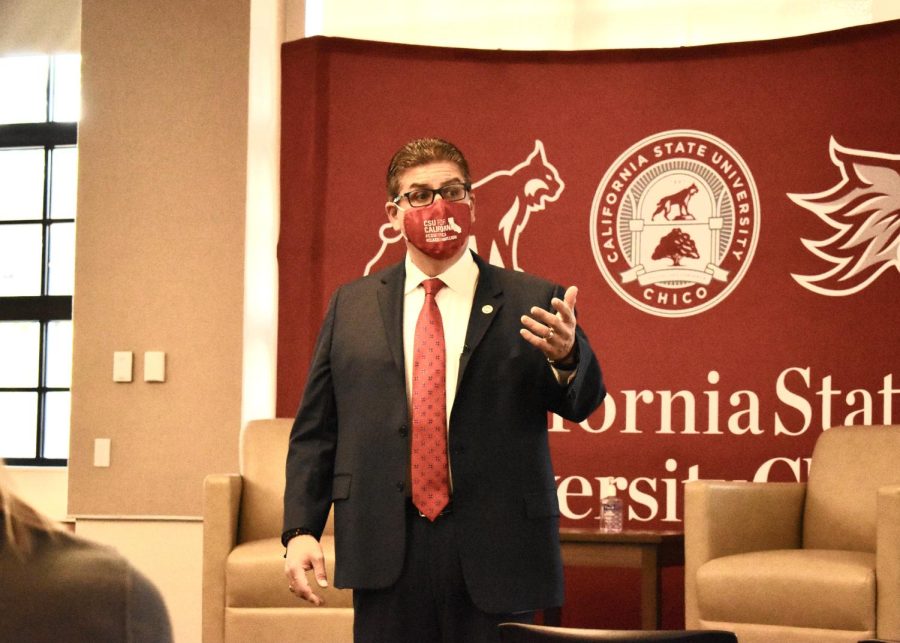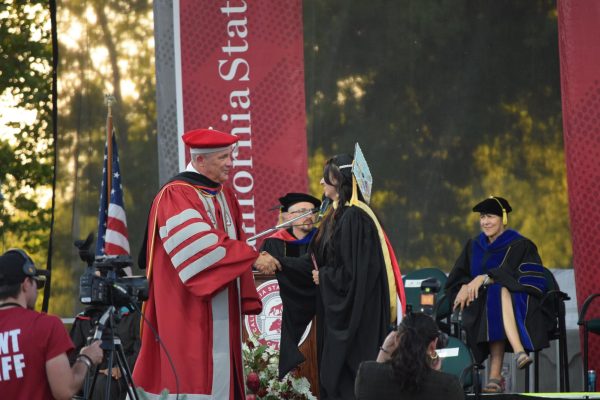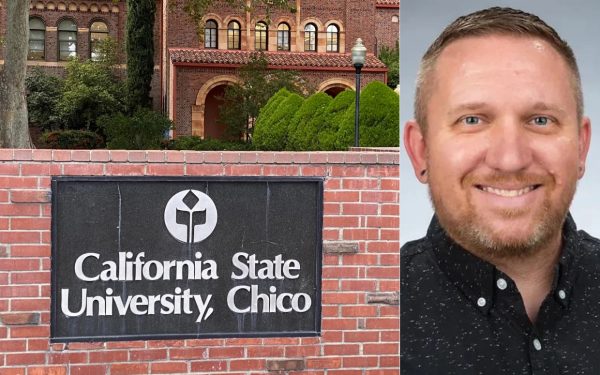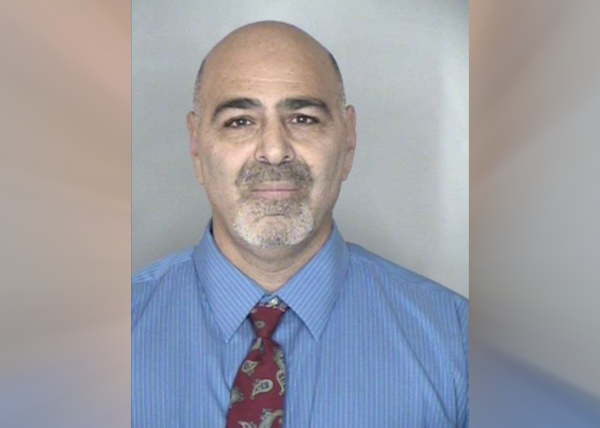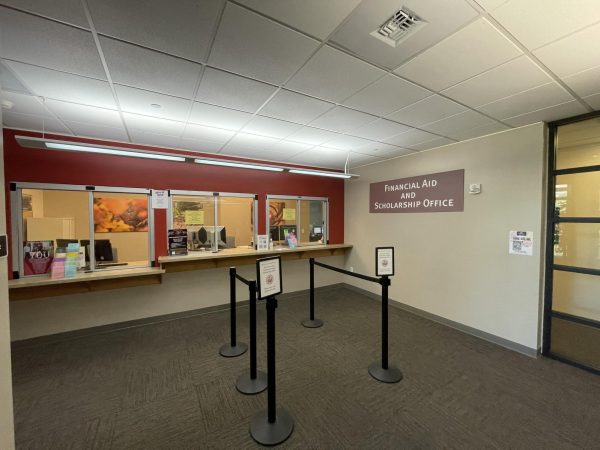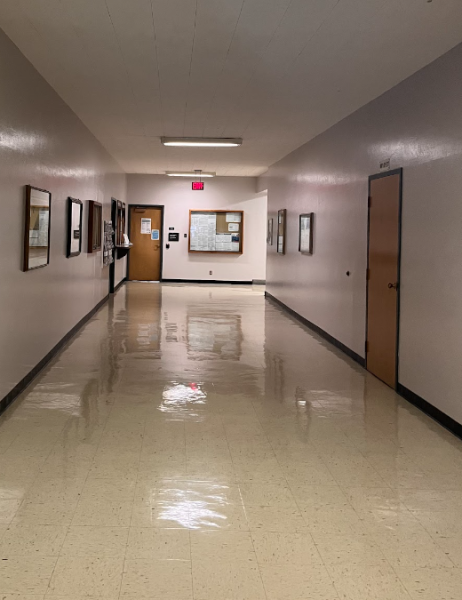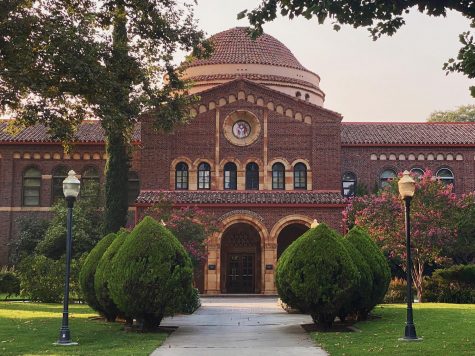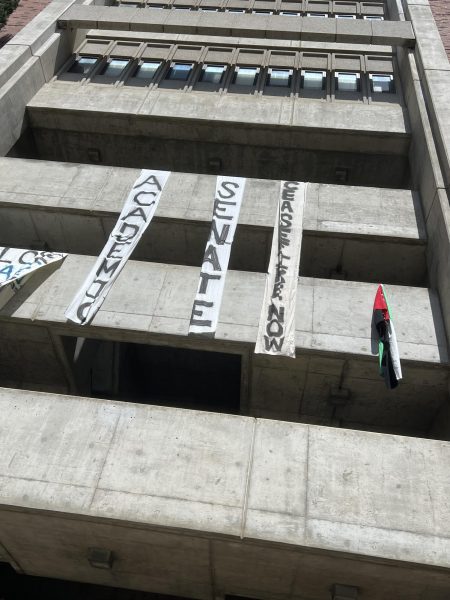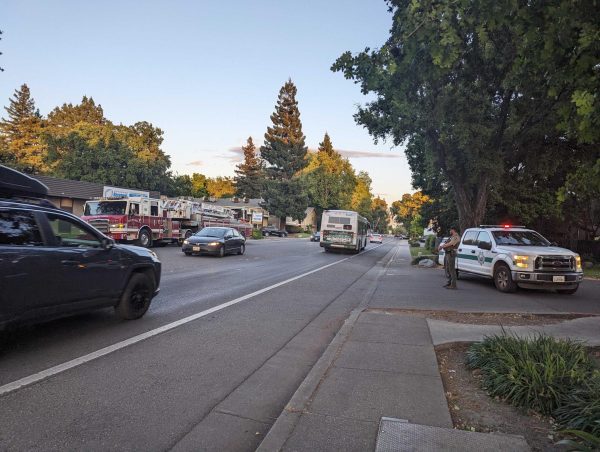CSU Chancellor Castro: no to tuition increases, yes to salary negotiations and mental health resources
California State University Chancellor Joseph Castro in Colusa Hall on Nov. 2.
California State University Chancellor Joseph Castro joined President Gayle Hutchinson on Tuesday afternoon to host an open forum for the Chico State community. He was welcomed by students, faculty and staff who voiced their concerns about wages, learning conditions and faculty diversity on campus.
Before taking questions, Hutchinson invited Castro to speak about salary negotiations and student concerns about raising tuition.
“Last year we went through a [10%] budget decrease,“ Castro said. “The trustees last year put together a budget for this year, and in that budget they did not contemplate the possibilities that eventually came to pass — that we could actually increase salaries because of the status of the pandemic.”
Castro acknowledged that despite the budget decrease, the CSU system eventually restored the cuts from last year, increased the budget by 2.7% and did not increase tuition. Castro noted that the CSU system is currently not planning on a tuition increase.
Castro added that he strongly supports greater investment of public and private resources such as funding from the state and national capital.
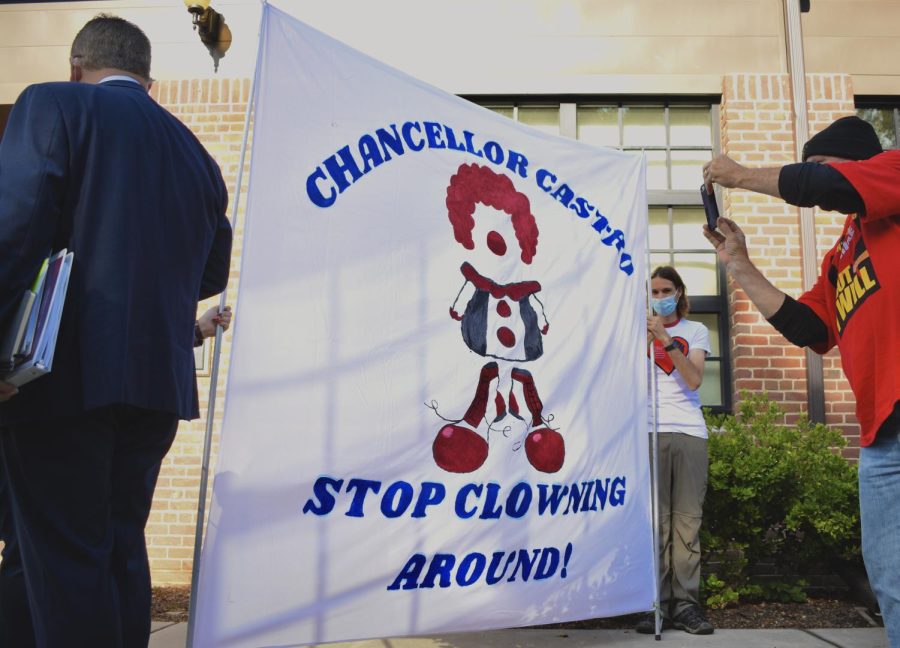
“Some companies and CEOS are finding me and asking me, ‘How can I support the CSU?’ And I’m going to try to figure out how to do that with each of the campuses,” Castro said.
“When you consider that, a year ago, we were contemplating the possibility of having to lay off more people, we’ve come a long way,” Castro said. “Having said that, it’s clear that we need to do more to support our employees. And the budget that was passed by our Legislature and governor did not include any funding for compensation.”
Castro said that he is working with respective presidents across the system to identify funds that can be used to increase compensation and to negotiate with the California Faculty Association and other unions about which funds to use.
The CFA has been conducting contract negotiations with the CSU system since July 2021 and proposed a 4% raise, according to the CSU’s Labor & Employee Relations communique.
“If somebody would only want to come work in public education because they are coaxed by six-figure salaries then why would I want them to come work in our education system?” asked Robin Averbeck, a Chico State professor in U.S. politics. “Why would we want them to work here if they wont come work here without a 10% raise after one of the biggest economic bodyblows that this nation has seen since 2008?”
Castro said that the 10% raise in administration salary is included in a performance-based calculation created by the trustees.
The CSU Board of Trustees recognized that compensation for administration falls behind other competitive markets during their September board meeting.
“We need to have equity for everybody and that would be for our staff, faculty and administrators, including our presidents,” Castro said.
Aaron Draper, vice chair of the Lectures Council, said lecturers like himself teach 15 units and work an additional 25-30 hours to supplement their income, which takes away time from being a full-time educator.
“We don’t want our lecturers who teach full-time DoorDash-ing,” Draper said. It’s a little bit humiliating when you show up and deliver food to your students, and they saw you in class the day before.”
Castro said that the CSU system will request more permanent funding in their next budget that will be used to increase the salaries, Graduation Initiative 2025 and basic needs.
“I promise you that we’re going to be as fair as we possibly can, and I’m looking forward to the upcoming meetings where we can hopefully resolve this and keep moving forward,” Castro said.
Before the forum ended, students and staff brought forward concerns about the lack of mental health resources. They also expressed concerns regarding the lack of diversity among staff and faculty on campus.
In 2019, Chico State hired two counselors, but did not hire any more during the pandemic. Hutchinson said the campus will soon hire more counselors and two case workers.
Castro said that the CSU system will be requesting more funding from the legislature and governor to prioritize basic needs investments like counseling.
“There’s a few of us who are bringing in all these BIPOC [Black, Indigenous, People of Color] students but when they get here, there’s nobody to receive them,” said Ben Duarte, outreach specialist for Chico STEM Connections Collaborative. “We’re not bringing in more BIPOC staff and faculty.”
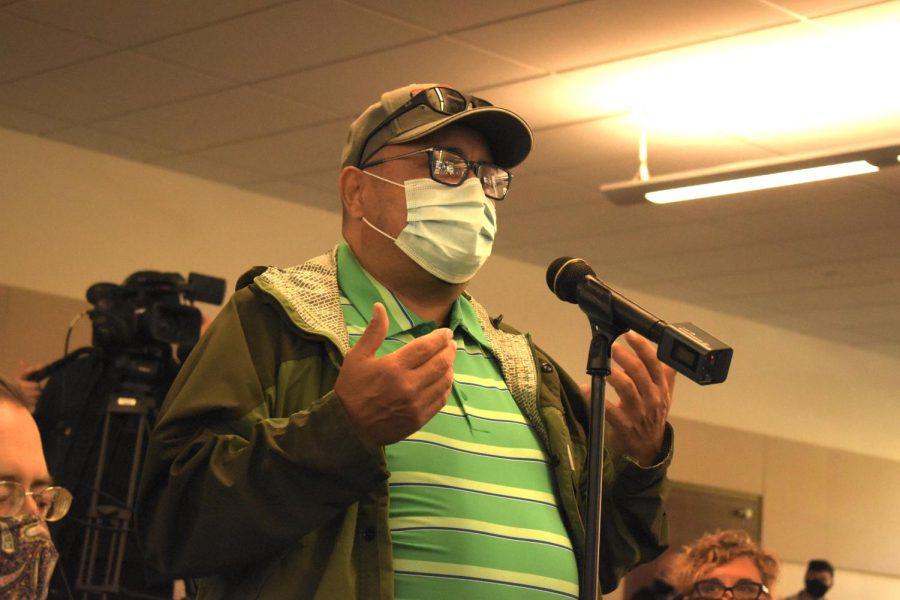
Hutchinson acknowledged that there is a struggle to increase the hiring and retention of staff and faculty. She attributed some of the failure to people leaving for other opportunities or retirement.
Dr. Debra Larson, provost and vice president for Academic Affairs added that Chico State feels a sense of urgency to increase diverse faculty.
“There’s been a number of things that we have improved on, but I do wish to step back and emphasize that this takes time and I’m very proud that two of our leaders are putting together this adelante grant — we’re focused on trying to grow our own faculty,” said Larson.
The chancellor also touched on supporting the Asian and Pacific Islander community across the CSU system.
“I think that while we work out with the federal government how we report on students — and some of that is within our control and some of it is not — the key issue is that we do everything that we can to support you, including API staff,” Castro said.
Kimberly Morales can be reached at [email protected] or @kimberlymnews on Twitter.








